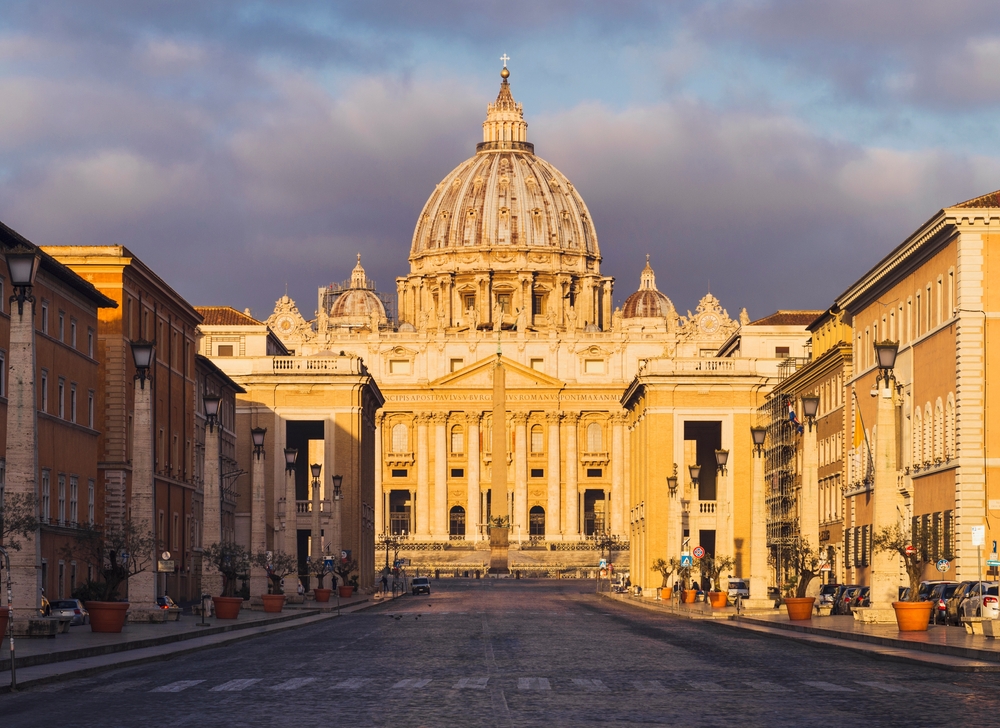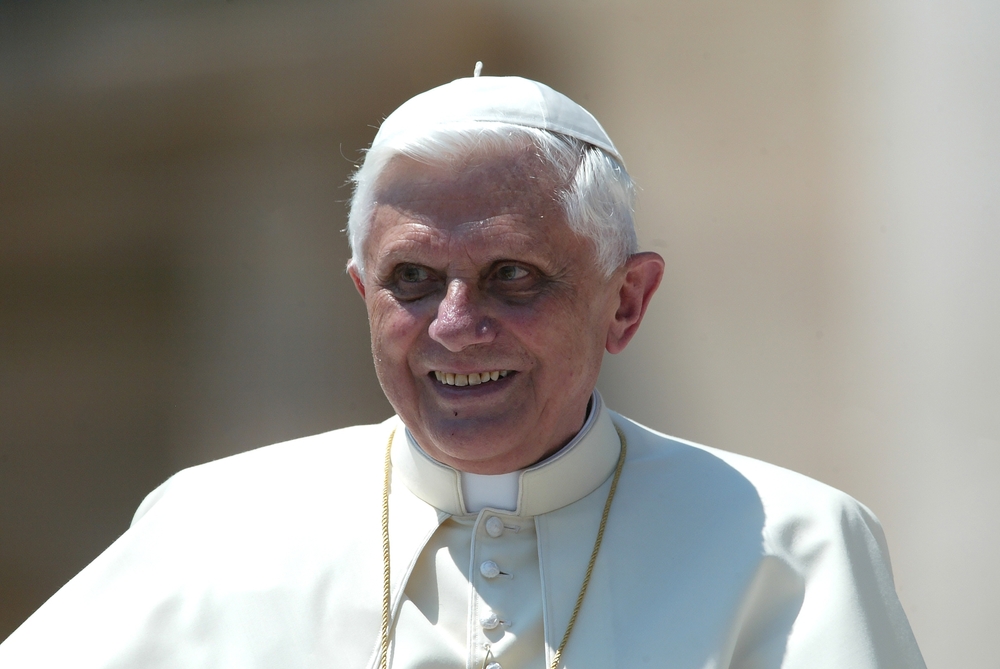True and False "Accompaniment" and Reading "the signs of the times". My latest in the "What We Need Now" substack. With a response from Andrew Gniadek

My latest in the "What We Need Now" substack of Jayd Henricks:
https://whatweneednow.substack.com/p/true-pastoral-accompaniment-requires
And here is the response to this post from Andrew Gniadek, creator of the podcast "Midnight Carmelite" and an expert in Carmelite spirituality:
Dear Larry,
Your stark assessment of our age as an “era of unbelief in the reality of Transcendence” resonates deeply with me and serves as a background for understanding what pastoral accompaniment is and could be. You also argue that the dominant cultural institutions operate on the premise that “God does not matter,” shaping how people think. In both cases, we have multiple types of absence: personal absence of belief and the obstacles to filling that void, cultural absence of belief and obstacles to filling that void, and ecclesiological absence of belief and the impediments to filling that void. Ultimately, these absences indicate the apparent lack of God’s presence in the modern world.
First, I think it’s important to discuss absence as such; absence is not merely a lack of presence but a positive phenomenon that frames our experience and understanding of the world. Absence frames and limits presence and also actively engages the person in unfolding the capacities of some phenomenon over time, in the cases of anticipating and remembering.
The difference today between the absence of God in the past versus the absence of God today in the personal absence of belief, the“age of unbelief,” as you call it, seems to arise not from the lack of force of the Gospel, but instead how the modern world artificially limits the scope of absence. In your article, you discuss the “immanent frame” where the transcendent is disregarded or considered irrelevant comes from this artificial limiting of absence to the horizontal, rather than including the transcendent, that is, something not immediately present but potentially real and impactful to human existence.
When the scope of absence is artificially limited, anything outside this arbitrary limited range becomes unreal, like fairies and unicorns, or, even more pernicious, a kind of imaginary opioid for the masses. According to modernity, the transcendent sphere is for the unenlightened masses who cannot utilize their reason well enough to understand moral norms or intellectual things and need this opioid to function properly in the “true” reality that is arbitrarily limited.
Yet, the difference and the danger are that when the transcendent sphere is arbitrarily limited, the absence of God is irrelevant and not part of any reasoning that separates God from what you call the “downstream,” like politics and culture. Since the modern world does not agree about “the fundamental narrative of reality,” this situation suggests that volitional rejection shaped the arbitrarily limited scope of reality, effectively annihilating the absent God.
The human will plays a key role here; this situation isn't simply an intellectual issue (nor do you suggest it to be such). Again, suppose I artificially limit my conscious awareness and its scope of absence. In that case, that is, where I can direct myself to know, desire, love, etc.,and my directedness as a person can only be empirically verifiable with the physical senses. God is not a meaningful absence at all. While reason can prove that what we call God exists, the age of unbelief dismisses this as a fairy tale since the proof lies outside the limited scope of modernity’s absence. Therefore, absence in the modern world is not the lack of something real as a positive phenomenon that frames and limits what is present; instead, it is an assumed state of affairs that does not, as you point out, even enter the modern world's mind to question openly, but definitely in private through moments of doubt.
Instead, in my mind, the first solution to this age of unbelief is to focus on absence as a positive reality; it’s a good thing that God is transcendent, and here’s why. God being transcendent, for starters, gives us the chance to transcend and live in eternal love with Love Itself. A non-transcendent God cannot provide that gift. Lived experience becomes self-referential as the person has no relationship with God that defines who he or she is. Compromise, in this case, is the order of the day as subjective lived experience is now the measure of right and wrong. This view abstracts God from His active presence to us, and turns him from a Triune Community of Persons to an Ideal we cannot live up to a relationship with on the terms the Ideal declares. Furthermore, on an abstracted rational level, the modern secular worldview cannot be seen as definitive proof of God’s non-existence on account of his absence but as a positive way to frame his presence in ways the modern secular view cannot account for in its limited scope. This limited scope reflects the limitation on realities beyond their immanent frame.
Second, we must have no fear engaging tough questions where the answers are apparent contradictions when considered from a proper scope of absence including the transcendent, but seem like insoluble contradictions within the limited scope of modernity’s absence in the immanent frame. The transcendent is truth, and we cannot fear questions that challenge our understanding of the transcendent since that will shut down the modern person who may be willing to break out of the matrix of modernity’s immanent frame. If we have any fear, the interlocutor will sense our own lack of trust in Christ, His Church, and that scent of fear will cause the person to not want to shatter the matrix of the immanent frame. Lack of trust is lack of love; if Christ is love, but you are fearful, why should I trust you about Christ? In other words, in my opinion, fear is the primary problem with evangelization today; due to the ecclesiological issues we are experiencing, and the lack of spiritual life, the relationship with God for most people is strained and tenuous, allowing different grades of fear to exist.
We must boldly tackle challenging questions that shatter the immanent frame, even if their answers seem contradictory at first glance to those who live within it. These apparent contradictions dissolve when we view them through a broader lens that embraces the transcendent absence of God as positive and that is beyond empirically verifiable experience. However, if we confine ourselves to modernity’s narrow focus of the material world, we are effectively handicapping ourselves.
The transcendent is truth; we shouldn’t shy away from questions that push us to deepen our understanding. Avoiding them with hand-waving answers like “God works in mysterious ways” shows the sloth of our own relationship with Christ and is like catnip to the nihilistic skepticism of modernity. To be clear, when we show fear, it reveals a lack of trust in Christ and His Church; a lack of trust means we do not love Him as much as we should. Most importantly, this fear is contagious— the nihilistic skeptic of modernity will smell the faint scent of death in any person who is externally covered with niceties and trappings of “faith,” even one armed with all the the intellectual power of the Tradition, but is internally a spiritually rotting carcass due to not living as a Christian ought by doing the will of God and being who He wants us to be. We need to live more and more in the will of God to counter the volitional rejection of modernity.
In my opinion, fear is the greatest barrier to sharing our faith today. This fear often arises from deeper struggles—such as issues within the Church, a weakened spiritual life due to partially or fully embracing the culture’s nihilism, etc.—that leave our relationship with God fragile. But if we embrace, that is, live, in the transcendent absence of God, we can engage these tough questions head-on, we will draw in those who are willing to listen to tackle these tough questions and break free of the immanent frame and unbelief.
Human persons desire the ultimate: many people seek the perfect something like a career, spouse, etc. The desire for the perfect, the ultimate, means that God encoded us for Himself, and that principle is the starting point for this line of questioning to shatter the limited scope of absence and disabuse the age of unbelief of its unbelief. In short, God has something to give you that will draw you to the ultimate you truly seek: Him alone.
Best,
Andrew








